Israel-Hamas War: What happened on day 116?
IDF close to defeating Hamas in Khan Yunis, half of terror group's forces 'out of combat' • Hamas 'studying' Gaza hostage deal, Haniyeh says
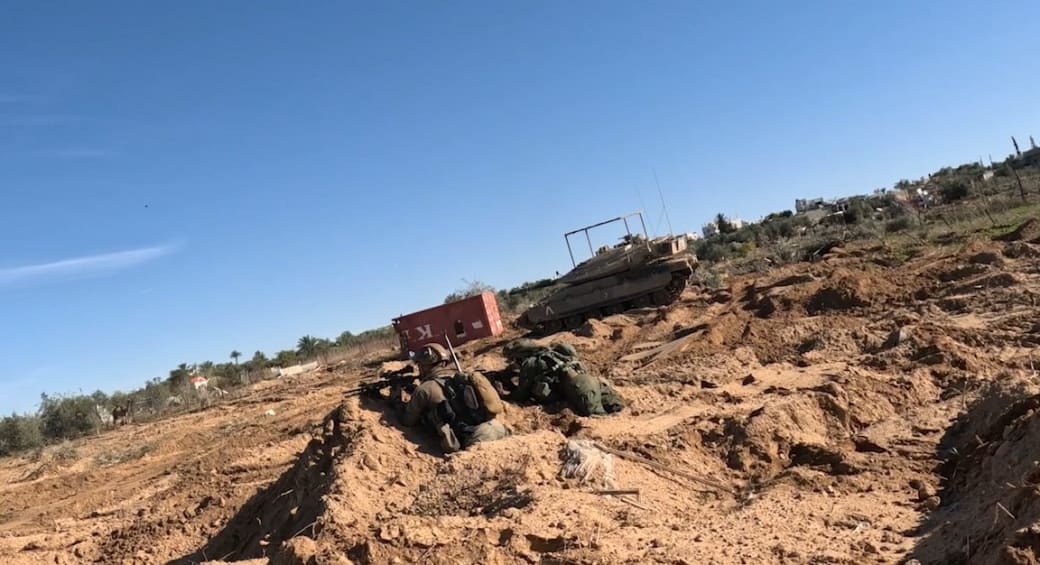

Ceasefire deal may be agreed to by next week - report

A ceasefire agreement which would include a hostage deal is expected to be reached next week, Kan 11 reported on Tuesday, citing Qatari sources.
Go to the full article >>Israel does more to prevent civilian casualties in Gaza than anyone in history - expert
While some have argued Israel could have waited longer, used different munitions, or not conducted the war at all - but these all fail to acknowledge the context of the hostages, rockets, and tunnels
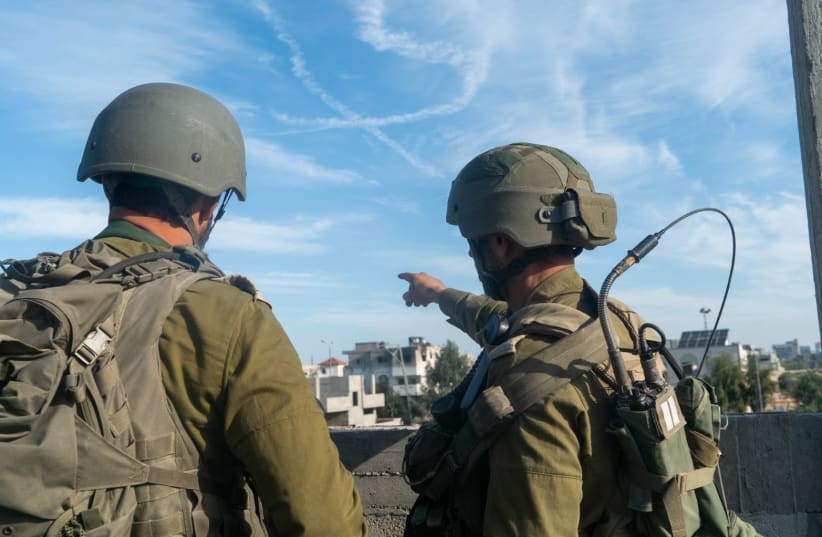
Israel has done more to prevent civilian casualties in Gaza than any other army in the world, chair of urban warfare studies at West Point, John Spencer said in an extensive thread posted on x (formerly Twitter) on Tuesday.
In the thread, he provided multiple examples of precautions that the IDF takes that other armies do not take to the same extent, or even at all.
IMO Israel has implemented more measure to prevent civilian casualties in urban warfare than any other military in the history of war. This includes many measure the U.S. has (or has not) taken in wars & battles but also many measures no military in the world has ever taken. 🧵
— John Spencer (@SpencerGuard) January 30, 2024
One of the most well-known examples of this is the various methods of warning before conducting attacks against Hamas.
He addressed this in multiple replies to the thread, one saying, "Call/Text ahead of a strike with (at times) roof-knocking (no military has ever implemented in war). In some cases, the IDF will call, text, drop small munitions on the roof of a building. While limited in the context of the strike it has been used in this war."
He even addressed some measures that the IDF took at the cost of its tactical advantage to save human lives.
Hamas maximizes harm to civilians in Gaza by hiding behind them.
— Israel Defense Forces (@IDF) October 13, 2023
The IDF minimizes harm to civilians in Gaza by dropping endless flyers urging them to leave harms way. pic.twitter.com/zLXmQDj5TT
"Provide warning and evacuate urban areas/cities before the full combined air and ground attack begins. While the tactic does alert the enemy defender and provide them the military advantage to prepare further, it is one of the best ways to prevent civilian casualties," he said.
The thread then addressed the unique complexities of warfare in the Gaza Strip, saying "No military in modern history has faced 30k defenders embedded in more than more than seven cities, using human shields and hundreds of miles of underground networks purposely built under civilian sites while holding hundreds of hostages and launching over +12k rockets at the attacking military's civilians areas."
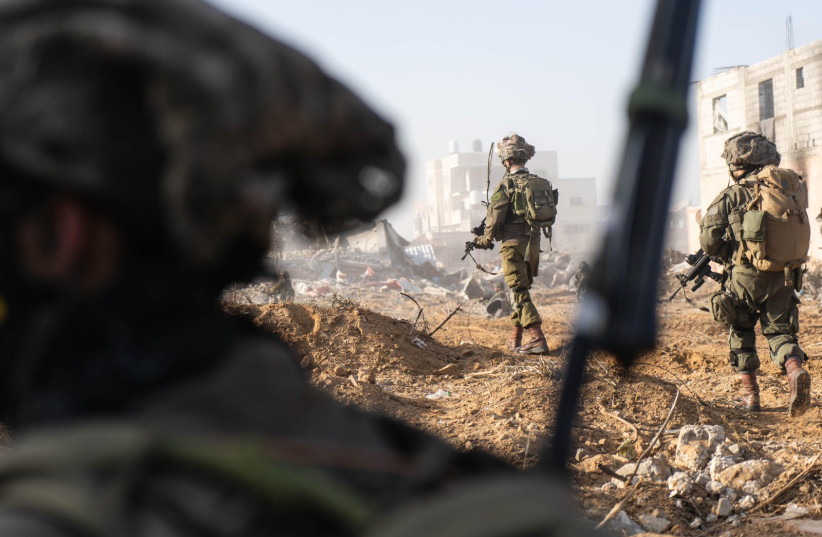
The thread addresses common criticisms of the IDF's methodology
Additionally, a leading criticism of how Israel is conducting its war against Hamas is the nature of the explosives being used. Criticisms include whether they are precision-guided missiles (PCMs) vs. unguided, and the size of the payload vs. the tactical advantage gained.
These issues were addressed in the thread as well.
On the issue of PCMs, he said, "Despite the ignorance of reporting on ratios of PCMs to non-PCMs, Israel has used many types of PCMs to include lower collateral damage munitions/small diameter bombs & technologies & tactics that increase the accuracy of non-PCMs (dive bombing) limit civilian causalities (sat imagery, AI, cell phone presence.)"
"Also myths about the choice of munitions & proportionality assessment/value of target/collateral damage estimate, such as saying a 500 lbs bomb would achieve the same military task as a 2,000 lbs bomb with no mention of tunnels that would require greater penetration or availability of types/quantity of munitions," he said regarding claims made against Israel for using heavy bombs as opposed to a lighter variety.
The thread finished with the following message "Again, Israel has implemented more measures to prevent civilian casualties than any other military in the history of war. While some have argued Israel could have waited longer, used different munitions, or not conducted the war at all - these all fail to acknowledge the context of Israel’s war from the hostages, rockets, tunnels, existential threat of Hamas, and more but also fail to recognize what Israel has done to prevent civilians casualties."
Spencer, a former US Army officer and now chair of urban warfare studies at West Point, has contributed his opinion on the IDF's performance and tactics in multiple operations in the past as well.
Go to the full article >>IDF destroys launchers that fired rockets at Tel Aviv, central Israel
The IDF troops operated in the central and northern parts of the strip as well as Khan Yunis.
The IDF directed Air Force fighter jets in destroying rocket launchers that were used to fire a barrage into central Israel on Monday, as well as eliminating terrorist cells in various parts of the Gaza Strip, it announced on Tuesday.
The IDF also announced that its troops destroyed a military asset belonging to Hamas' Anti-Tank Missile Unit.
In addition, soldiers from the 98th formation have continued fighting in western Khan Yunis. The forces have reportedly eliminated terrorists during combat and located large quantities of weapons. Furthermore, IDF troops directed an aircraft that struck and killed several terrorists in the area.
The operations weren't limited to Khan Yunis
IDF soldiers from the 162nd formation have operated against terrorists in the central and northern Gaza Strip as well.
In the Shati area, soldiers from the 401st brigade eliminated multiple terrorists and located vast amounts of weapons.
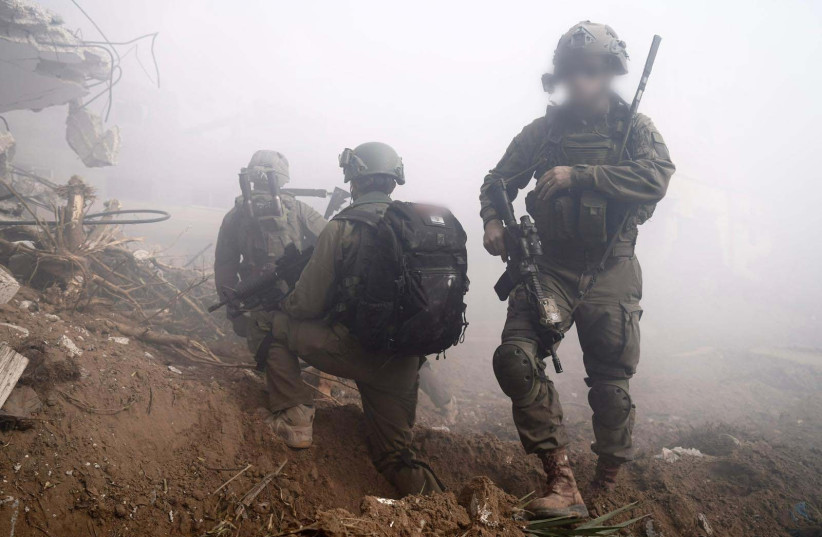
In the central Gaza Strip, soldiers from the Nahal brigade identified a terrorist cell armed with RPGs that was approaching troops in the area. With the direction of the fighters on the ground, a UAV targeted and killed the terrorists.
Go to the full article >>Israel hands over bodies of Palestinians killed in Gaza - Gaza health officials
Israel on Tuesday handed over to Palestinian authorities the bodies of dozens of Palestinians killed by Israeli forces in Gaza in recent weeks, health officials in the Palestinian enclave said.
The officials said that the bodies, which had been held in Israel, were handed over through the Israeli-controlled Kerem Shalom crossing and will be buried in mass graves in the city of Rafah in the south of the Gaza Strip.
The Hamas-governed health ministry in Gaza did not immediately say how many bodies had been handed over.
Israel did not immediately comment on the handover.
Go to the full article >>Hamas 'studying' Gaza ceasefire and hostage deal, Ismail Haniyeh says
Hamas is "studying" the Paris proposal for a Gaza ceasefire and hostage deal and is open to all ideas to end the IDF's war in the Strip, leader Ismail Haniyeh said on Tuesday.
This is a developing story.
Go to the full article >>Blinken: evidence against UNRWA ‘credible,’ agency can’t be replaced
He spoke after Israel provided UNRWA with data alleging that 12 of its staff had been part of the October 7 attack on Israel.
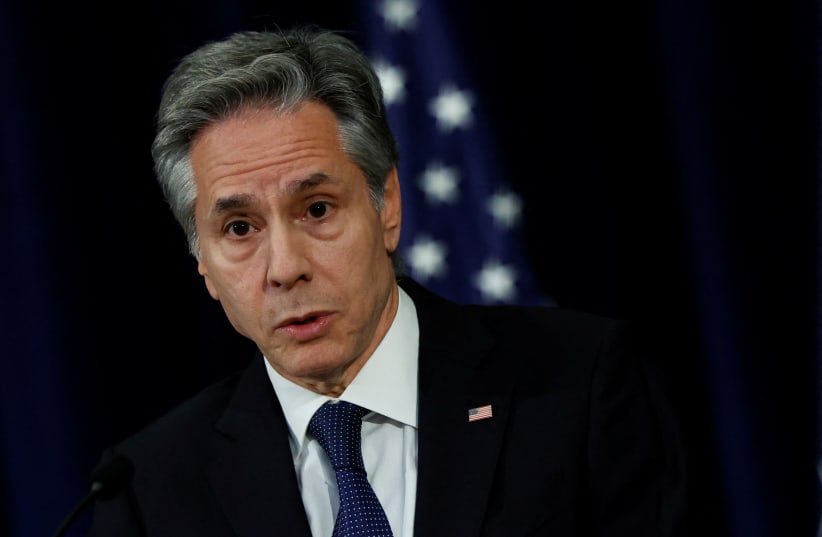
The evidence that some UNRWA staff members participated in the October 7 attack against Israel is credible, US Secretary of State Antony Blinken said, as he stressed that it was not possible to replace the organization’s role as the major humanitarian service provider in the region.
“We haven’t had the ability to investigate [the allegations] ourselves, but they are highly, highly credible,” Blinken told reporters in Washington.
He spoke after Israel provided UNRWA with data alleging that 12 of its staff had been part of the October 7 attack against southern Israel in which over 1,200 people were killed and another 253 seized hostage.
Blinken said that UNRWA had reported to the US on the situation and that he found it “deeply, deeply troubling.”
The US is one of the largest donors to UNRWA, $1.6 billion budget, which is expected to increase in 2024 and which is the largest support by annual donor funding. That funding is contingent on UNRWA and its staff not being involved in incitement against Israel and engaged in terror.
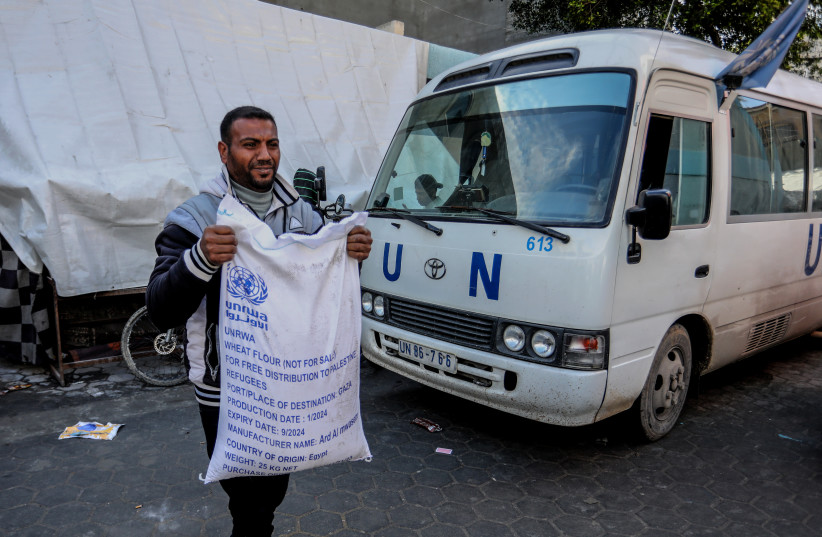
Agency has fired nine of the employees named as taking part in Oct 7 attack
UNRWA has fired nine of the staff members accused of taking part in the October 7 attack, including in some of the kidnappings. The UN has also opened an investigation into the allegations.
Blinken said it was “imperative that UNRWA immediately, as it said it would, investigate; that it hold people accountable as necessary; and that it review its procedures.”
He said had spoken about the issue with UN Secretary-General Antonio Guterres and that it would be “looking very hard at the steps that UNRWA takes to make sure that this is fully and thoroughly investigated, that there’s clear accountability, and that as necessary, measures are put in place so that this doesn’t happen again.”
The US is among upwards of 15 donor countries that have suspended funding already pledged toward the 2024 budget until a UN investigation is completed.
At risk is over $363 million in pledged funds. UNRWA has warned that unless the suspensions are rescinded it could be forced to halt its services to 5.9 million Palestinians in Gaza, the West Bank, east Jerusalem, Lebanon, Jordan, and Syria.
Blinken calls UNRWA "indispensable"
Its efforts have been considered particularly critical in Gaza, in light of the Israel-Hamas war, which has caused the displacement of most of the 2.3 million Palestinians in the enclave. UNRWA services most of that population.
Blinken said that UNRWA’s role as a humanitarian service provider is “indispensable.”
“No one else can play the role that UNRWA’s been playing, certainly not in the near term. No one has the reach, the capacity, the structure to do what UNRWA’s been doing. And from our perspective, it’s important – more than important; imperative – that that role continues,” Blinken stated.
“That only underscores the importance of UNRWA tackling this as quickly, as effectively, and as thoroughly as possible, and that’s what we’re looking for,” he stated.
At the UN in New York, Guterres’s spokesperson Stephen Dujarric said that the organization was taking “very seriously” the allegation that had been made.
He noted that there were two different dossiers of information that Israel had privately released, of which only one that had been shared with the UN was the report that dealt with the participation of staff members in the October 7 attack. The UN, he explained, has not seen the larger dossiers, reported on by Reuters and other media agencies, regarding the links between Hamas and 190 of the UNRWA staff.
Israel has not made public its data against UNRWA.
Go to the full article >>WATCH: Israeli commandos, dressed as doctors, foil terror attack in Jenin hospital
'They were hiding in every corner': IDF special forces commander talks to 'Post'
Lt. N. talks about fighting in northern, southern Gaza, losing troops on October 7 in Kissufim.
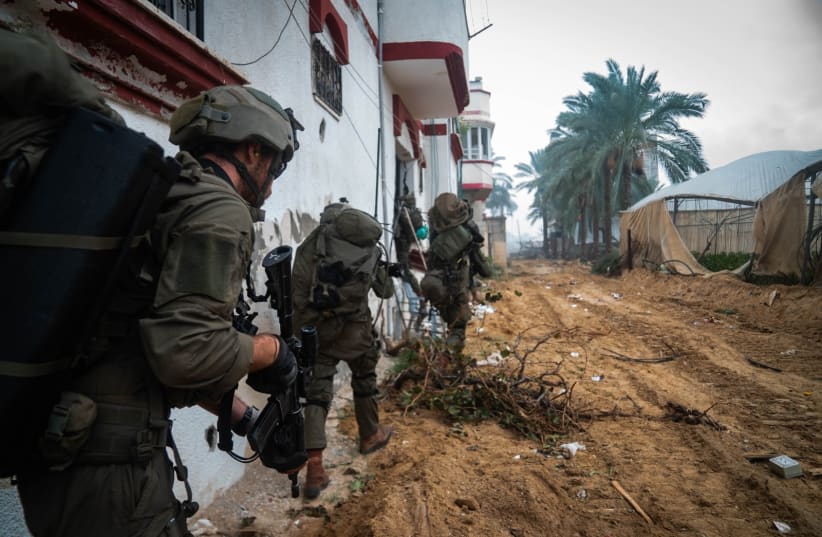
Egoz special forces platoon commander Lt. N. spoke with The Jerusalem Post on Sunday about the varying challenges of fighting Hamas in some of the deadliest battles of northern Gaza, places such as the Shati and Jabalya refugee camps, as well as in southern Gaza, especially Khan Yunis.
Throughout all of the battles his unit participated in, including on October 7, they killed about 200 Hamas terrorists, N. said. He also lost four of his commanders on October 7 and another during battles in Gaza, and some of his soldiers were wounded.
N., who has served in Egoz for five years, described his platoon’s experiences in large-scale battles, including with his commander, at the rank of major. His unit entered northern Gaza a couple of weeks into the invasion, he said. They had intensive battles there for about five days, in addition to mopping up smaller terrorist group operations afterward, he added.
Shati was difficult from a professional military perspective, N. said, because the IDF could not manage to get the full range of forces – including tanks and artillery assistance – to enter the very narrow alleyways.
No room for vehicles
There was also no room for engineering and obstacle-clearing vehicles, which could both protect the soldiers and help dispose of encroachments and booby traps. Instead, his forces often had to slowly creep through alleyways in essentially single-file lines. This left them much more exposed to potential ambushes.
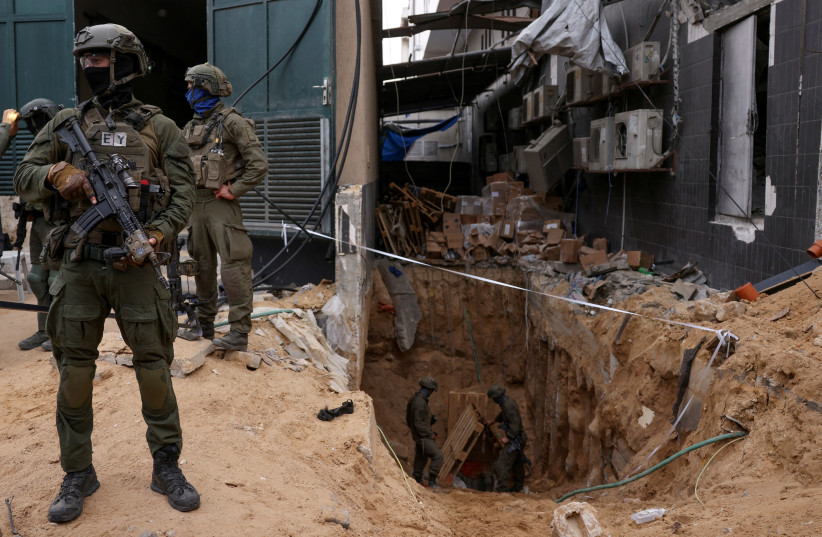
The terrain was challenging because “only one person was able to move at a time through the northern alleyways,” N. said. “We know how to fight an enemy, but we still could not use all of our qualitative advantages” because of the narrow area to maneuver and the difficulty in seeing the enemy.
“There were lots of hiding places and structures,” he said. “They were hiding in every little corner.”
But unlike October 7, “the fighting itself was what we are used to, without having to worry about Israeli civilians being in the way,” N. said. “They have a clear defense line; we have a clear offense line. We were at home in terms of a standard tactical situation.”
“We went house to house,” he said. “We initiated and did not wait for them to attack.”
N.’s unit later fought in northern Gaza, with battles in Jabalya, particularly at the Indonesian Hospital. Then in December, N’s special forces joined in the invasion of southern Gaza, including about six weeks of fighting in Bani Suheila and Khan Yunis.
In that invasion, Egoz joined hundreds of regular infantry forces along with the other special forces, tanks, artillery, the Oketz dog unit, the Yahalom anti-tunnel unit, and sharpshooters. N. said there was a larger volume of enemy Hamas forces in the South, compared with what he saw in Shati, but he also said it was easier to fight them because the area was broader.
The houses were larger and more like villas, not like the very small houses in the Shati refugee camp, leaving more space in between them to maneuver and fewer spots for Hamas to hide, N. said.
Nevertheless, “tunnels were a larger problem than in northern Gaza,” he said. “Every spot had a tunnel shaft, [and they were] everywhere.”
N. said he felt resistance in Khan Yunis was fading, and that the IDF could potentially achieve general operational control in the near future.
All of this came after N. was already hardened from the deadly and painful experience of fighting to repel Hamas’s invasion on October 7.
On that Saturday, he had eight soldiers under his command along with other officers.
He woke up at 7 a.m. to calls and messages about many kibbutzim in the South getting invaded, including videos.
N. said he could tell the situation was “very complex, but I did not yet fully understand the magnitude of the event,” something that took weeks.
Along the way, N. and his unit saw large numbers of bodies of both Israeli civilians and Hamas terrorists.
His forces were initially called on to assist at Re’im, but while driving there, they were given updated orders to redirect to Kissufim. When they arrived, they heard heavy gunfire. Many regular infantry soldiers, who were taken by surprise or were outnumbered, were seeking safety in a school. Some were already dead or wounded.
N. started to map out the area and to establish a physical defense line that his forces could take up.
“This was a different kind of war,” he said. “Usually, we come to attack with all of our weaponry and means. Here, we couldn’t just let loose with gunfire everywhere because there were civilians. This meant we had to get right up close to them.”
He said his unit had saved civilians and killed terrorists. It lost four soldiers.
N. also described tactics for taking prisoners. In one case that could be a paradigm for other cases, he said, they had an intense gunfight with four Hamas fighters. Three were killed, and the fourth one was wounded.
After approaching the fourth from a distance to make sure he was wounded, neutralized, and unarmed, they took him into custody.
N. sat with the Post during a three-day break from fighting, but he and his Egoz commandos were expected to return to Gaza shortly.
Go to the full article >>Netanyahu will collapse war gov't if he delays hostage deal, minister warns
"Even if we replaced Netanyahu, the aim to destroy Hamas will not change," Chili Tropper stressed, as talks over a new hostage deal continued.
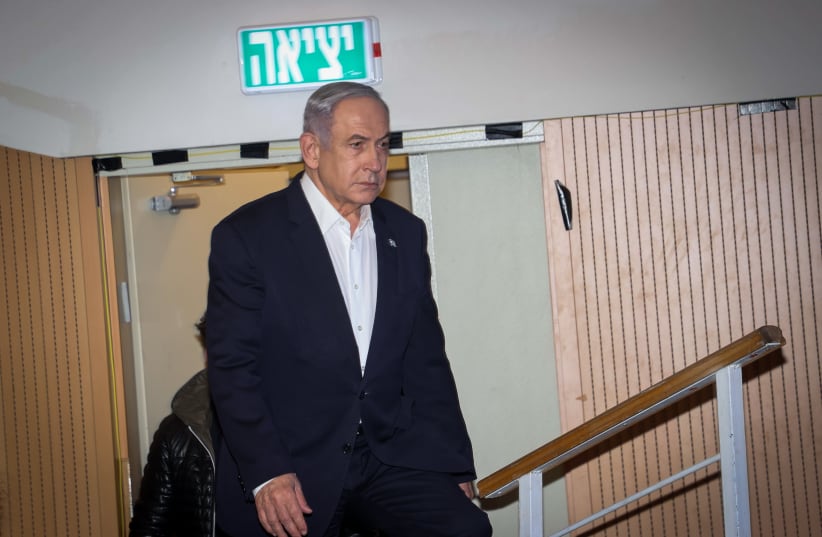
Israel's emergency war government will collapse if Prime Minister Benjamin Netanyahu refuses an acceptable deal for the release of Hamas hostages from Gaza, National Unity minister Chili Tropper warned on Tuesday morning.
Amid pressure on the government to finalize a deal with Hamas for the release of the remaining 136 hostages, Tropper noted that ending the war in Gaza is not an option.
"We would have to pay a heavy price (in a hostage deal) but stopping the war is a price Israel is unwilling to pay," Tropper told 103FM. "If there is a deal we can live with and Netanyahu doesn't sign on it, we will leave the government.
"Even if we replaced Netanyahu, the aim to destroy Hamas will not change."
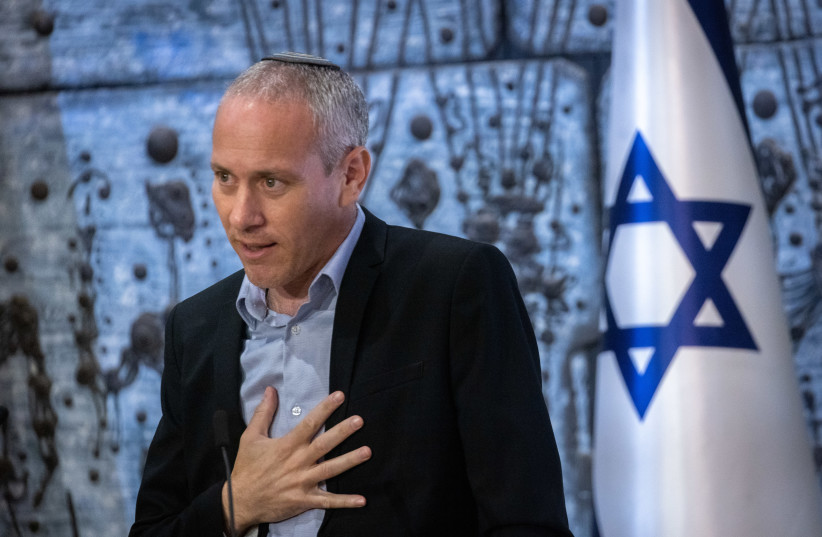
The details of the proposed hostage deal
Hamas rejected a hostage deal drafted in Paris over the weekend because it did not include a permanent ceasefire, reiterating that Israel must halt its Gaza offensive and withdraw from the Strip before any prisoner exchange takes place.
The broad framework under discussion has focused on an exchange of captives for the release of Palestinian security prisoners or terrorists, as well as a pause in the war.
It is presumed that the deal to free the 136 captives would be done in stages, as occurred with the November deal, during which 105 captives were freed during a week-long lull in fighting.
Tovah Lazaroff contributed to this report.
Go to the full article >>Israel's Knesset speaker to visit US House with hostages' families
It was further highlighted in the Knesset that the goal of the delegation is to establish diplomatic relations with lawmakers and policy-makers in the United States in support of the goals of war.
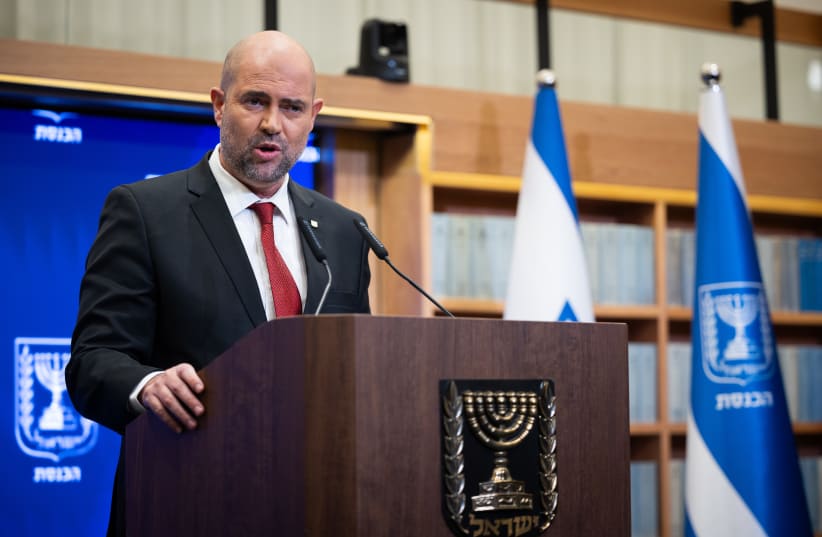
Knesset Speaker Amir Ohana was invited to the United States House of Representatives in the first week of February. He is scheduled to meet with the Speaker of the US House of Representatives, Mike Johnson.
The Knesset Speaker has invited several former hostages and family members of hostages to his diplomatic visit. Those invited include Emily Hand, a 9-year-old girl who was released from Hamas captivity, along with her father Thomas Hand; Zvika and Efrat Mor, the parents of Eitan Mor who is still in captivity; Ali al-Ziadana, whose brothers Aisha and Bilaal were released, but his brother Yosef and his brother-in-law Hamza remain in Hamas captivity; as well as members of the Knesset from both the opposition and the coalition.
Emily Hand will not be joining the diplomatic visit, although her father will.
Meeting with Mike Johnson
Amir Ohana and Mike Johnson are expected to meet in Congress on Tuesday, February 6. During the diplomatic visit, Speaker Ohana is expected to hold meetings on the subject of policy with senior members of Congress and beyond, the leadership of AIPAC, Jewish organizations, and also to address matters at the conference of the Inter-Parliamentary Union at the United Nations headquarters.
The parliamentary delegation that will travel to the Capitol will include members from both the opposition and the coalition: Chairman of the Foreign Affairs and Defense Committee of the Knesset, MK Yuli Edelstein of Likud, MK Efrat Rayten of Labor, and MK Idan Roll of Yesh Atid.
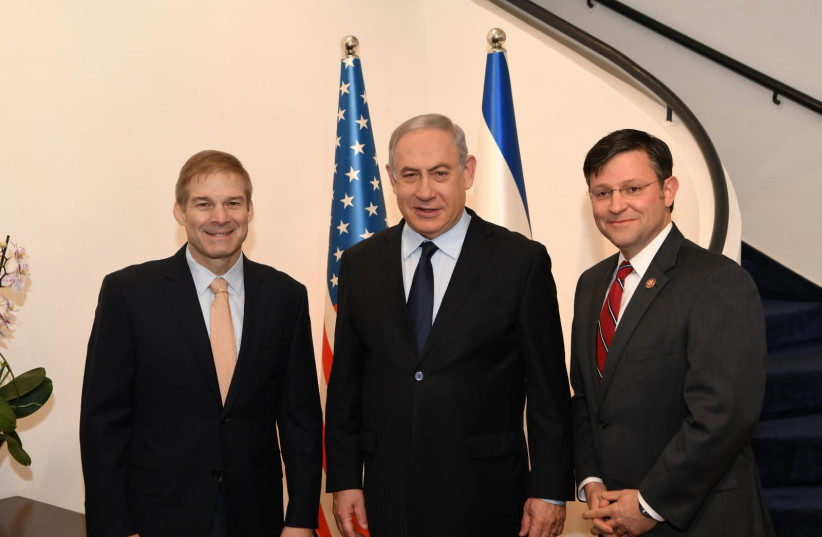
Mike Johnson has one of the most conservative voting history on record in the House, is a strong supporter of Donald Trump, and of Israel.
In the Knesset, it was emphasized that the invitation by the American House of Representatives during this period of war reflects, first and foremost, the strength of partnership between the two countries.
It was further highlighted in the Knesset that the goal of the delegation is to establish parliamentary and diplomatic relations with lawmakers and policy-makers in the United States in support of the goals of the war: undermining the military and political capabilities of Hamas and the return of all the captives.
Go to the full article >>Israel-Hamas War: What you need to know
- Hamas launched a massive attack on October 7, with thousands of terrorists infiltrating from the Gaza border and taking some 240 hostages into Gaza
- Over 1,200 Israelis and foreign nationals were murdered, including over 350 in the Re'im music festival and hundreds of Israeli civilians across Gaza border communities
- 136 hostages remain in Gaza, IDF says